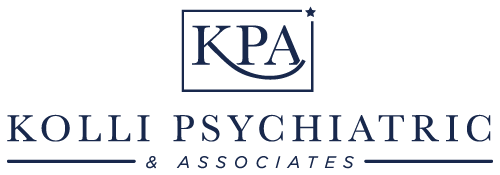Substance Use Disorder and Addictions
Have you been feeling more isolated lately or even disconnected from the things and people you love? Are you frequently gripped by a sense of doom or dread? Perhaps, you’re spiraling from one high to one low, and another high again? Or maybe you’ve started seeing your self-esteem plummet? If you’ve been nodding along to these questions, then you might be struggling with addiction.
Substance use disorder, a severe health issue, arises from repeated alcohol or substance abuse. Such ongoing use, despite its harmful impacts on health and life quality, can result in addiction.
This disorder ranges in severity from mild to severe. These substances overly activate the brain’s reward center, leading to excessive dopamine (feel-good hormone) neurotransmitter release.
Regular substance use like opioid use causes noticeable changes in the central nervous system of the brain’s function and structure. Over time, this results in cravings and tolerance towards the substance, as well as withdrawal symptoms in its absence.
Addiction can be a relentless enemy, but it does not define you. It’s an illness, not a moral failing; like any illness, it can be treated. At Kolli psychiatric clinic, we understand your struggle.

What is the difference between substance use and addictions?
The root of addiction lies in the overstimulation of the brain’s reward center. An excessive release of dopamine, a neurotransmitter, typically signifies this overactive state. Continued substance use can alter the brain’s structure and function. This leads to cravings and withdrawal symptoms when the substance use is stopped.
Addiction
Addiction is defined as the uncontrollable, repeated use of a substance or activity that an individual feels unable to stop. Non-substance-related addictions can include habits or activities such as the following:
- Gambling
- Sex or pornography
- Excessive internet or social media usage
- Compulsive shopping
- Video gaming
- Overeating or food-related issues
Substance Abuse Disorder
The root causes of Substance Use Disorder (SUD) remain unknown, but several factors can play a role. Some of these factors include:
- genetics
- high levels of stress
- family history of substance abuse
- peer pressure
- personality traits
- Mental health conditions, including anxiety, depression, and attention deficit hyperactivity disorder (ADHD)
Additionally, a strong connection exists between trauma exposure, particularly during childhood, and substance use. It’s worth noting that post-traumatic stress disorder (PTSD) sufferers often battle with SUD.
Symptoms
The symptoms and signs of substance use and addiction can differ significantly among individuals. They are influenced by the type of substance or behavior, the duration and intensity of use, and the user’s personality.
Some of the general symptoms of addiction and substance use disorder are:
- continued use despite negative impacts on health, relationships, or other life aspects
- craving the substance or behavior
- habitual overconsumption
- anxiety about overuse
- engaging in risky behavior, such as driving under the influence and unprotected sex
- abandoning previously enjoyed activities
- neglecting responsibilities like work, school or home
- developing a tolerance
- suffering withdrawal symptoms upon cessation
- Taking larger amounts of the drug than intended
How do we treat Substance Abuse and Addictions?
Diagnosis
Our expert psychiatrists reference Diagnostic and statistical manual (DSM-5) criteria to spot signs of this disorder effectively.
Medication Management
Medication management plays a pivotal role in managing withdrawal symptoms and reducing cravings, particularly in cases involving substances like alcohol. For substance abuse treatment, medication is tailored to individual needs to assure the best possible outcome and is regularly adjusted and monitored for effectiveness and side effects.
Therapy
Behavioral counseling has proven to be effective for addiction treatment. This allows individuals to identify triggers, change harmful behaviors, manage stress, and improve relationships with friends and family.




